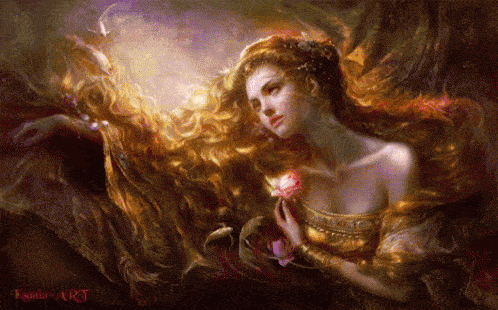




Hey everyone! Do you like Greek mythology? Do you remember any myth or the Greek gods who were the characters of these stories? Today we will cover this topic. Take this quiz and find out which one you resemble. But first, let’s recall this aspect of world history.
Greek mythology is a collection of myths conveyed by the ancient Greek tradition of stories about gods and heroes, explaining the place of man in the world, and the very functioning of the world, its creation, and history. From mythology, knowledge about the world was taken. On this basis, ethical standards were developed that determined man’s place in the established world order. However, the knowledge derived from myths was never a “revealed truth” and was open to discourse, polemics, and criticism. The ancient Greek religion itself was based to a large extent on the unity of religious practices and not on the unity of views. Although it is impossible to talk about it in isolation from mythology, which is its elementary component.
The oldest sources of knowledge about Greek mythology are the works of Homer and Hesiod. Mythology stimulated artistic creativity to such an extent that new threads constantly appeared. They reflected the relationship between man and gods; they served mainly to define boundaries that mortals were not allowed to cross.
Greek mythology entered the heritage of European culture and is still present in various manifestations of social life. For example, New Age, astrology, horoscopes, worship, and contemporary religious reconstruction movements draw from it. Today, the Greek religion is trying to revive Hellenism.
The Greek myths were initially propagated in an oral-poetic tradition most likely by Minoan and Mycenaean singers starting in the 18th century BC. Eventually, the stories of the heroes of the Trojan War and its aftermath became part of the oral tradition of Homer’s epic poems, the Iliad and the Odyssey. Two poems by Homer’s near contemporary Hesiod, the Theogony and the Works and Days, contain accounts of the genesis of the world, the succession of divine rulers and human ages, and the origin of human woes and sacrificial practices.
Aside from this narrative deposit in ancient Greek literature, pictorial representations of gods, heroes, and mythic episodes featured prominently in vase paintings and the decoration of votive gifts and many other artifacts. Geometric designs on pottery of the eighth century BC depict scenes from the Trojan cycle and the adventures of Heracles.
The gods of Greek mythology are described as having essentially corporeal but ideal bodies. According to Walter Burkert, the defining characteristic of Greek anthropomorphism is that “the Greek gods are persons, not abstractions, ideas or concepts.” Ancient Greek gods have many fantastic abilities. Most significantly, the gods are not affected by disease and can be wounded only under highly unusual circumstances. The Greeks considered immortality as the distinctive characteristic of their gods. This immortality and unfading youth were insured by the constant use of nectar and ambrosia. Thanks to them, the divine blood was renewed in their veins.
Each god descends from its own genealogy, pursues differing interests, has its own area of expertise, and is governed by a unique personality. These descriptions arise from many archaic local variants, which do not always agree with one another. When these gods are called upon in poetry, prayer, or cult, they are referred to by their names and epithets. They identify them by these distinctions from other manifestations of themselves (for example, Apollo Musagetes is “Apollo, leader of the Muses”). Alternatively, the epithet may identify a particular and localized aspect of the god, sometimes thought to be already ancient during the classical epoch of Greece.
Most gods were associated with specific aspects of life. For example, Aphrodite was the goddess of love and beauty, Ares was the god of war, Hades the ruler of the underworld, and Athena the goddess of wisdom and courage. Some gods, such as Apollo and Dionysus, revealed complex personalities and mixtures of functions. Others, such as Hestia (literally “hearth”) and Helios (literally “sun”), were little more than personifications. The most impressive temples tended to be dedicated to a limited number of gods, who were the focus of large pan-Hellenic cults. However, it was common for individual regions and villages to devote their own cults to minor gods. Many cities also honored the more well-known gods with unusual local rites and associated strange myths unknown elsewhere. During the heroic age, the cult of heroes (or demigods) supplemented that of the gods.
Greek mythology has had an extensive influence on the culture, arts, and literature of Western civilization. It remains part of Western heritage and language. Poets and artists from ancient times to the present have derived inspiration from Greek mythology and have discovered contemporary significance and relevance in the themes
Now that we’ve remembered what it’s all about, let’s move on to the quiz. Answer twenty questions and find out which Greek god you are. Have fun, and see you in the next quiz!